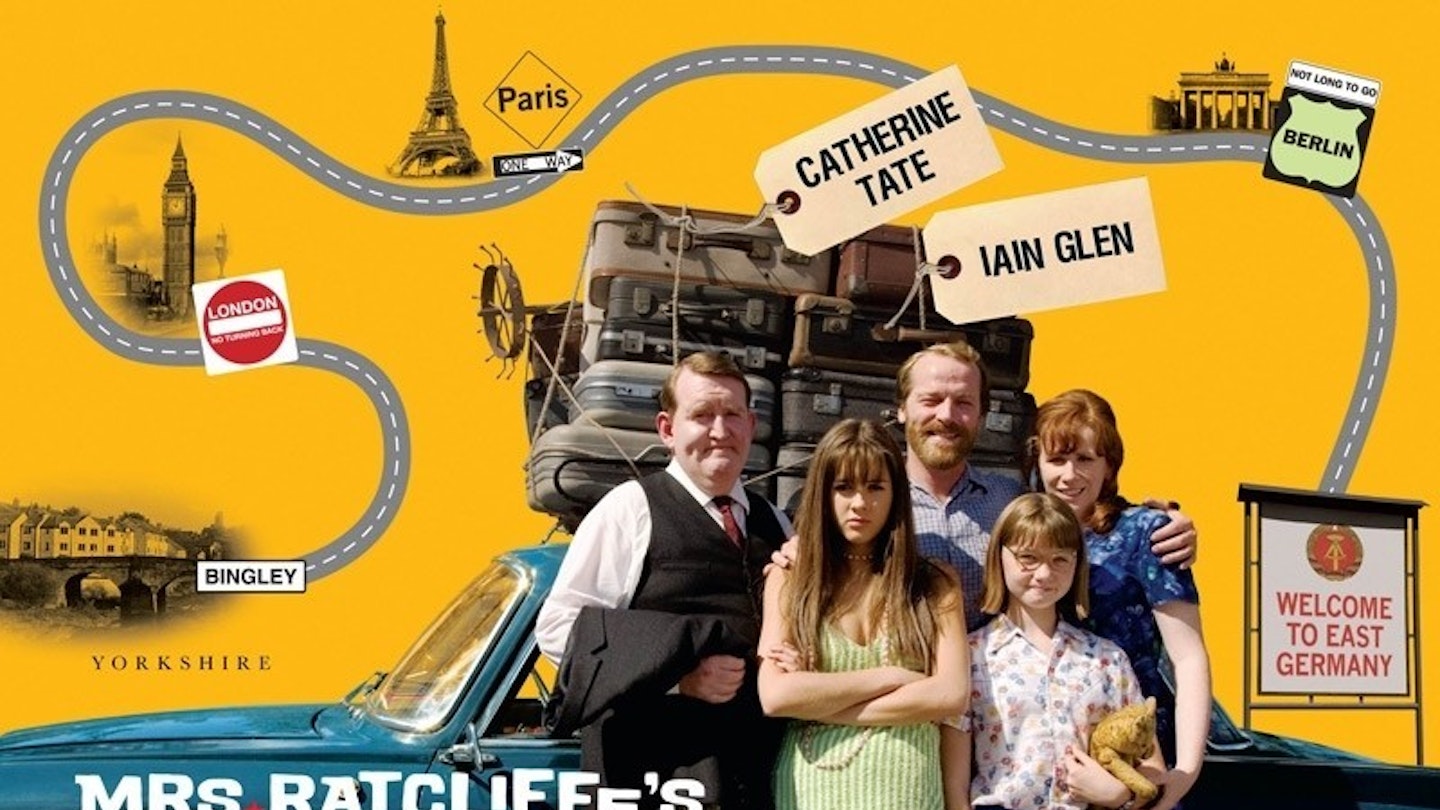Replaying history for laughs, especially recent history, is something fraught with peril - even more so when you’re dealing with a situation in which real people lost their lives, and thousands more were put through interrogation or torture. So it’s to Mrs. Ratcliffe’s considerable credit that this historico-political-family-drama-comedy manages to walk the tightrope between funny and offensive with hardly a wobble, making light of characters but never of the stakes involved.
The story follows the Ratcliffe family, devout socialists in peaceful 1960s Yorkshire, as they take a giant leap of faith and move to East Germany to live the Marxist dream. Iain Glen’s Frank and young Mary (Jessica Barden) are most keen to go; teen rebel Alex (Brittany Ashworth) is horrified at the prospect and mother Dorothy (Catherine Tate) is swept along despite her misgivings, along with her shy brother Philip (Nigel Betts).
Once in the GDR, their armchair socialist dreams crash into the Communist reality, with predictably frightening consequences for the little family.
It’s as everything falls apart that Tate’s Dorothy starts to assert herself, abandoning her unprepossessing family-peacekeeper role and taking charge. Tate handles the transition well, proving - after her small but perfectly formed role in Starter For 10 last year — that she could have a durable career on the big screen. Her ascent is mirrored by Glen’s Frank’s fall into despair, and neatly paralleled by her two daughters finding their own feet amid the chaos.
The film does pull some punches - Dorothy finds herself in the Resistance by accident and proves eerily capable of handling the fearsome Stasi - but not to the point of sanitisation. There are more than hints at the darkness behind the often colourful tones, especially in the person of Frau Unger (Love Actually’s Heike Makatsch, trying to wreck another home) and in the wealth of supporting roles.
If, ultimately, the film doesn’t quite manage to marry the personal caper with the wider historical context, it’s not for want of trying.
